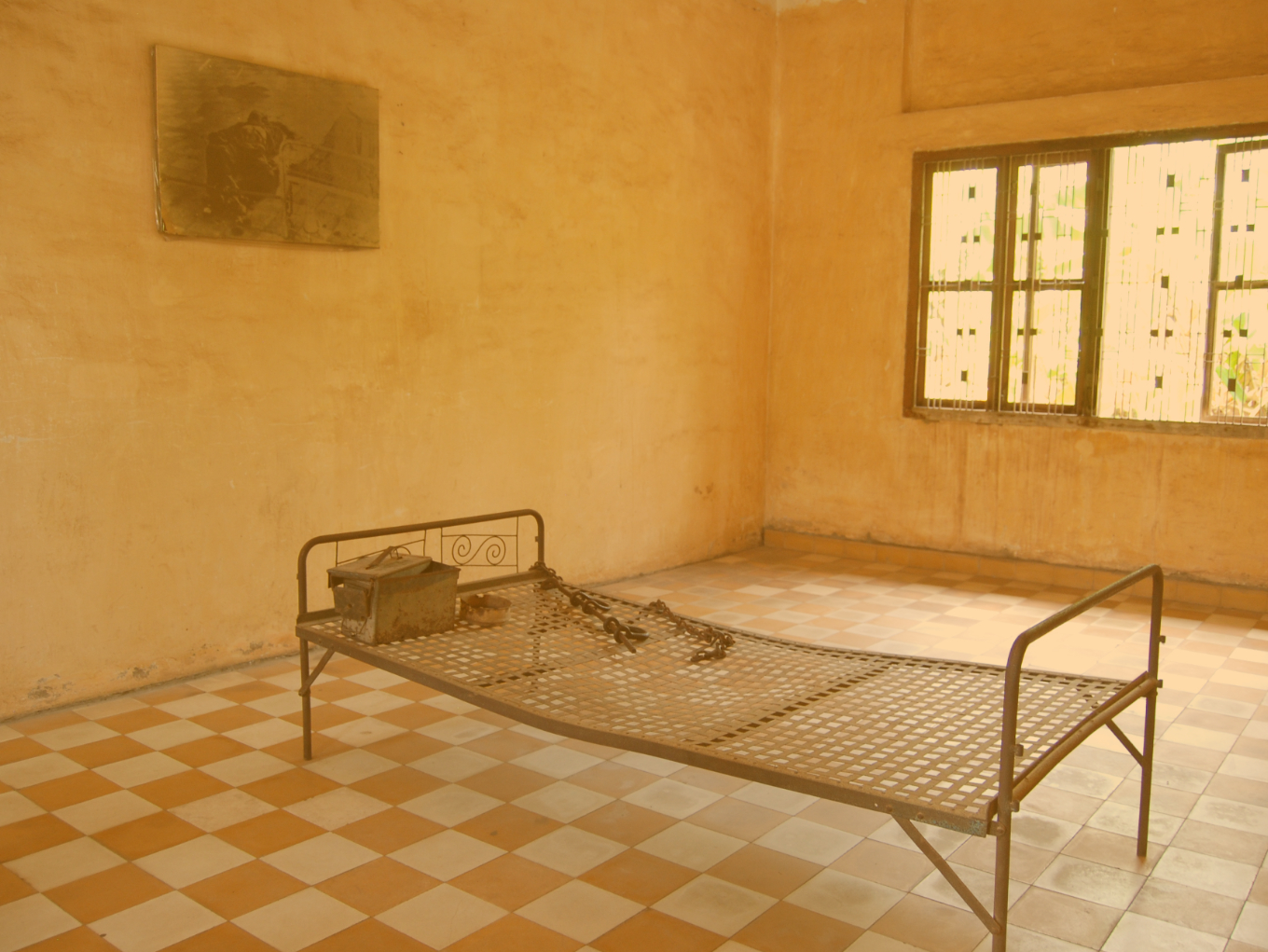1
The bar with the U-shaped clamps
to lock the prisoner’s feet
still lies on a bedframe where
a sleeper like me always assumes
the freedom of my legs
Non-stop were the interrogations
so that the iron checkerboard-rectangle
permanently sagged
A simple wooden chair
before this rusting pattern
of crucifixion
The interrogator:
more of a playwright
The interrogated:
his Theater of the Absurd
By the end of the interrogation
the prisoner confessed to killing
everybody even his or her
torturer
–whose legs
were free
like mine
And so the play ends:
Who the writer was
Who his never satisfactory
rewritten characters
–there are just these simple
props
And perhaps in a cell
in Syria or elsewhere
being used again
2
Iron nets
–hundreds padlocked
and tortured on these
bedframes to leave
a concave shape
always a chair nearby
where the Khmer Rouge
torturer sat but without
leaving any indentations
How light & airy
were the killers
(who escaped before
the Vietnamese
entered this prison)
How numerous
were the victims
(in order to prove
how flesh could
bend steel)
Ideologies make bodies
do strange things
And ideologies can even
make banalities seem
phantasmagorical
just like it seems that
no one ever sat
in these chairs
to make a body
do the impossible
3
Iron bedframes with padlocks
for prisoners’ hands & feet
Simple wooden chairs
before each of them where
the Khmer Rouge interrogators
sat
Close your eyes
Imagine the classrooms
when this was a girls’ high school
–before a regime that erased
everything about the old
society: even the calendar
In 1975 when the Khmer Rouge
took power in Cambodia
the year was now declared
to be Zero
All that stands between a torturer
and his or her prisoner
is a teacher
–and his or her questions
Oh get your students
to question everything
most of all answers
that come quickly
–and with promises
of utopia
4
On the walls behind each
bed frame where prisoners
were padlocked for hours
or even days a picture
of one of the tortured
victims but with a piece
of tape erasing their eyes
Victim after victim
after victim
–but we are not
allowed to see
whatever pain
or fear or helpless-
ness they felt before
they were going to die
We must be respectful
–but are we also
being protected?
Un-taped we can
uneasily imagine
their mouths crying
and screaming
But just like I could
not help them now
Neither could I have
helped them back in
1978 or 1979 just like
I cannot help others
like them today beyond
my outrage & sympathies
as they look out at me
from my magazine or
newspaper that I open
in Paris or New York
Image: originally posted to Flickr as Detention and torture room, Security Prison 21 (S-21), Tuol Sleng Genocide Museum, Phnom Penh, Cambodia





